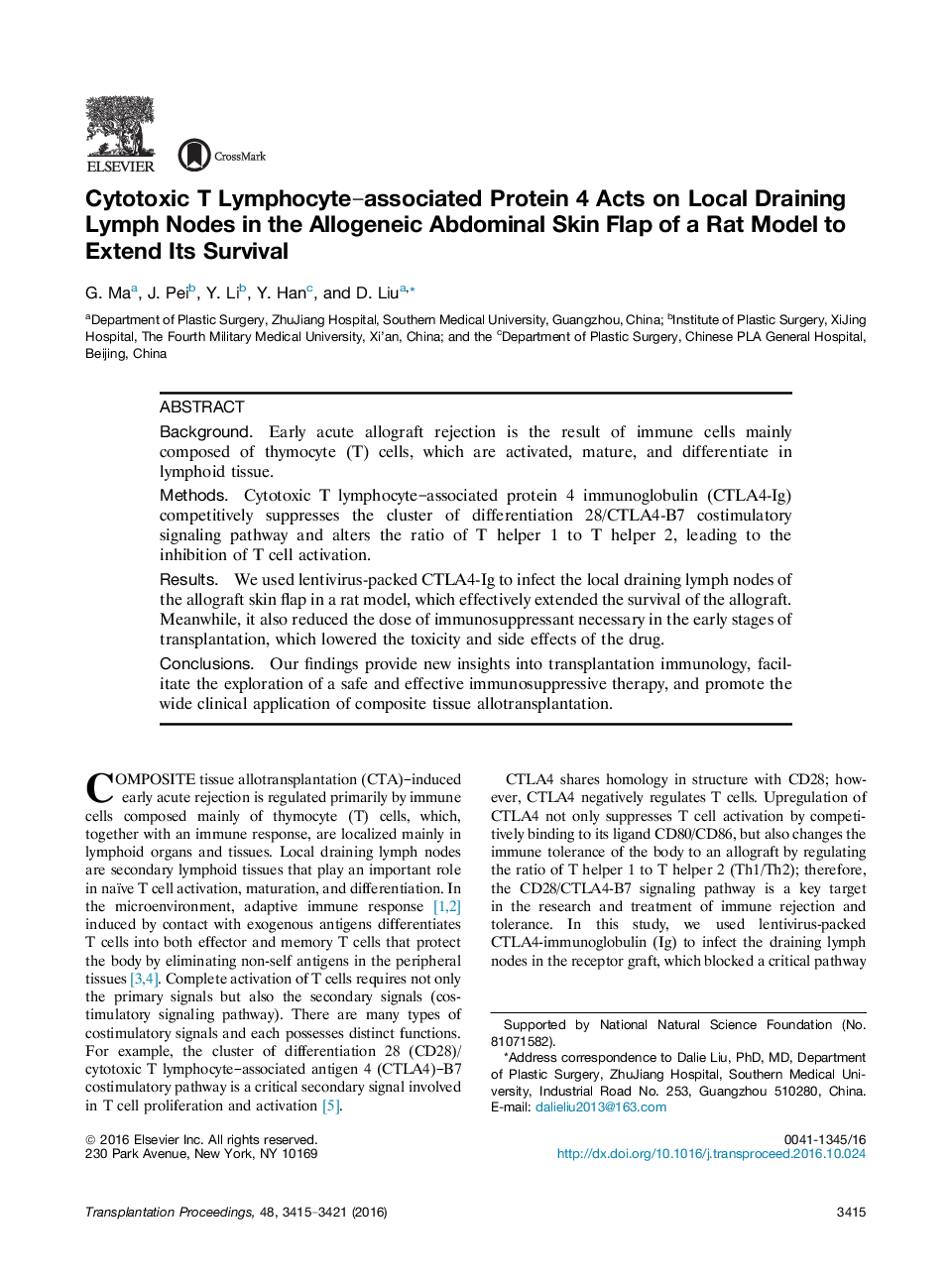| Article ID | Journal | Published Year | Pages | File Type |
|---|---|---|---|---|
| 5729104 | Transplantation Proceedings | 2016 | 7 Pages |
â¢Direct intervention of receptor draining lymph nodes.â¢Combination with low-dose immunosuppressant can greatly improve the survival of the allograft.â¢New insights into the research of composite tissue allotransplantation.
BackgroundEarly acute allograft rejection is the result of immune cells mainly composed of thymocyte (T) cells, which are activated, mature, and differentiate in lymphoid tissue.MethodsCytotoxic T lymphocyte-associated protein 4 immunoglobulin (CTLA4-Ig) competitively suppresses the cluster of differentiation 28/CTLA4-B7 costimulatory signaling pathway and alters the ratio of T helper 1 to T helper 2, leading to the inhibition of T cell activation.ResultsWe used lentivirus-packed CTLA4-Ig to infect the local draining lymph nodes of the allograft skin flap in a rat model, which effectively extended the survival of the allograft. Meanwhile, it also reduced the dose of immunosuppressant necessary in the early stages of transplantation, which lowered the toxicity and side effects of the drug.ConclusionsOur findings provide new insights into transplantation immunology, facilitate the exploration of a safe and effective immunosuppressive therapy, and promote the wide clinical application of composite tissue allotransplantation.
